Send Inquiry
Can Dogs Eat Human Food? What’s Safe and What’s Not
As dog owners, we’ve all experienced those pleading puppy eyes at the dinner table. While it’s tempting to share our food with our furry friends, not all human foods are safe for dogs. Feeding your dog the wrong food can lead to serious health issues. In this blog, we’ll explore what human foods are safe for dogs, which ones should be avoided, and how to ensure your pup stays healthy and happy.
Safe Human Foods for Dogs
Some human foods are not only safe for dogs but also provide nutritional benefits. Here’s a list of foods your dog can enjoy:
Lean Meats
Cooked chicken, turkey, and beef are excellent protein sources. Just make sure they’re plain and free from seasoning, salt, or sauces.Carrots
Raw or cooked carrots make a great low-calorie snack that’s high in fiber and vitamin A, promoting healthy eyes and teeth.Apples
Apples are a great source of vitamins A and C and are safe for dogs as long as the seeds and core are removed.Peanut Butter
Unsweetened and xylitol-free peanut butter is a tasty treat packed with healthy fats and protein. Serve in moderation.Plain Rice
Cooked white or brown rice is gentle on a dog’s stomach and can be used as part of a bland diet for dogs with digestive issues.Blueberries
These antioxidant-rich berries are safe and healthy for dogs, promoting a strong immune system.Pumpkin
Plain, cooked pumpkin is great for digestion and helps regulate a dog’s bowel movements.
Human Foods Dogs Should Avoid
While some human foods are safe, others can be toxic or harmful. Here are the top foods to keep away from your dog:
Chocolate
Chocolate contains theobromine, which is toxic to dogs. Dark chocolate and baking chocolate are particularly dangerous.Grapes and Raisins
Even small amounts of grapes or raisins can cause kidney failure in dogs.Onions and Garlic
These common ingredients can damage a dog’s red blood cells, leading to anemia.Avocado
Avocado contains persin, which can cause vomiting and diarrhea in dogs.Alcohol
Even small amounts of alcohol can lead to serious health problems like liver damage or central nervous system issues.Xylitol
Found in sugar-free gum, candies, and some peanut butter brands, xylitol can cause a dangerous drop in blood sugar levels and liver failure.Cooked Bones
Cooked bones can splinter and cause choking or damage to your dog’s digestive tract.
How to Introduce New Foods to Your Dog
When introducing new foods to your dog, start with small quantities and monitor for any adverse reactions like vomiting, diarrhea, or lethargy. Always consult your veterinarian before making significant changes to your dog’s diet.
Healthy Alternatives to Human Food
If you’re looking for ways to treat your dog, consider high-quality, specially formulated dog treats or foods designed to meet their nutritional needs. Brands like Meatyway offer a range of options that are safe, nutritious, and delicious for your furry friend.
Conclusion
While it’s okay to share some human foods with your dog, it’s crucial to know what’s safe and what’s not. By understanding the difference, you can avoid potential health risks and keep your dog happy and healthy. Stick to dog-specific foods when in doubt, and remember, moderation is key!
For more tips on pet nutrition and care, check out the resources available at Meatyway.
